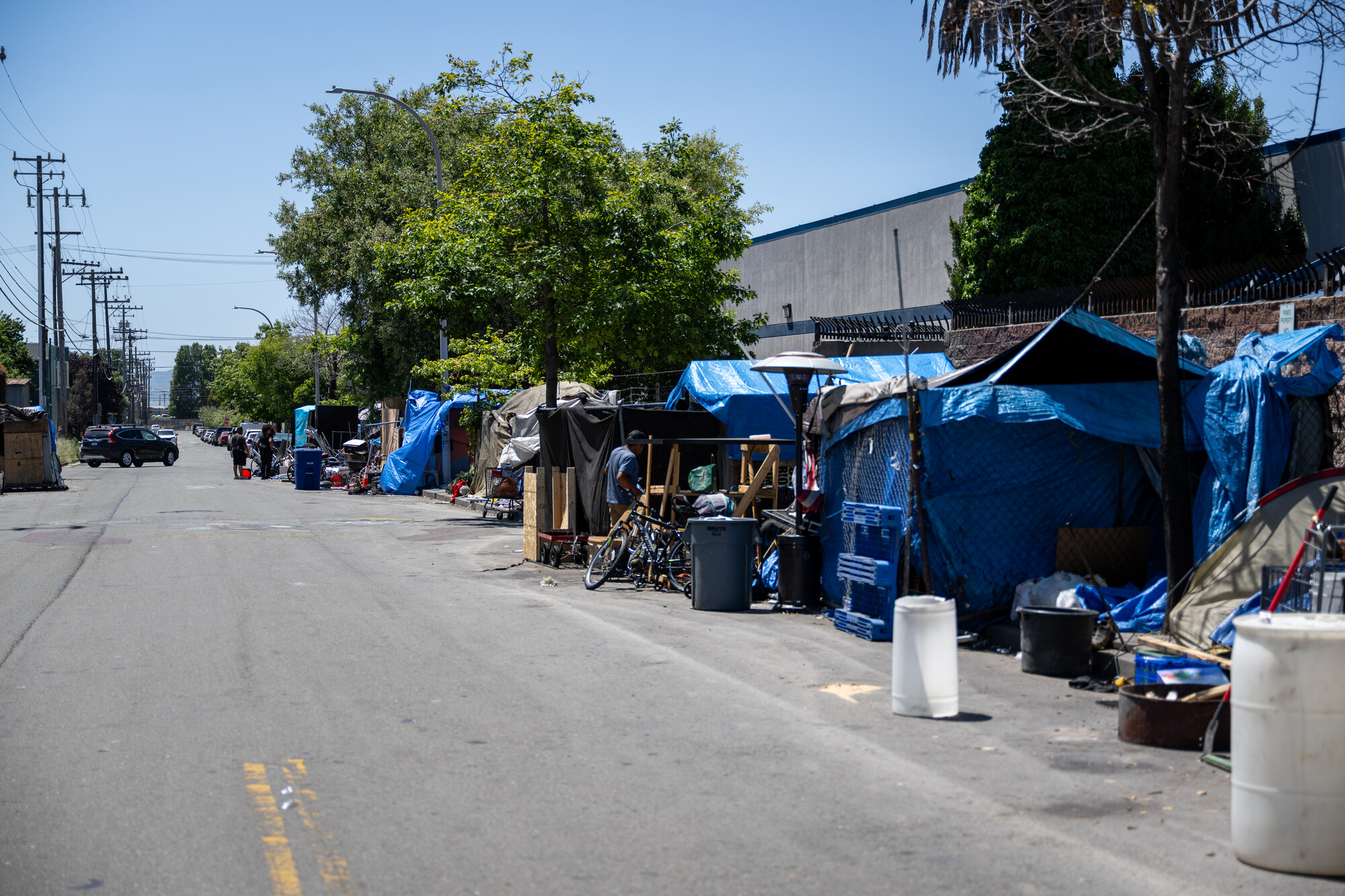A spokesperson for the police department confirmed one person was arrested during the sweep, but directed all questions about use of force to the city, which did not respond to multiple requests for comment.
In a statement, Mayor Adena Ishii said, though the details are still emerging, “the video circulating on social media is upsetting, particularly during such a traumatic moment for people.”
She added that she is “committed to ensuring that our city approaches clearings of encampments with as much care and empathy as possible while ensuring everyone’s safety and well-being.”
The city had moved to close the encampment earlier this year, citing health hazards and public nuisance, including rodents, loose syringes, rotting food and human waste, but the Berkeley Homeless Union and residents sued and won a temporary restraining order. That order expired on May 23, after an attorney for the union missed a filing deadline for a preliminary injunction.
On Wednesday, several hours after the city started dismantling the camp, Senior District Judge Edward Chen ordered the city to stop, citing due process concerns.
Councilmember Rashi Kesarwani, whose district includes Harrison Street, expressed support for the city’s action.
“The Berkeley Homeless Union is exploiting the legal system to keep the dangerous, unsafe encampment on Harrison Street open, which is a known magnet for criminal activity and open illicit drug use,” she wrote in an email to KQED. ”I applaud our city staff who conducted vital, difficult work on Wednesday to close the Harrison encampment after we were legally cleared to do so and had issued notice for closure in January before litigation delayed the closure process. The city will now follow the restraining order issued by Judge Chen.”
Brigitte Nicoletti, an attorney with the East Bay Community Law Center who represents some camp residents, said residents had been caught off guard. The city did not provide advance notice of the sweep and gave people less than 30 minutes to retrieve their belongings before heavy machinery moved in to crush and remove what remained.
“They wouldn’t even let me cross the lines to talk to clients,” Nicoletti added, referring to a large area cordoned off by the police. “It’s very, very concerning and a real escalation in tactics.”

“It doesn’t take all that,” said Shareef Muwwakkil, who’d been living in a tent in the area for a couple years. “Most people out here are malnutritioned; they don’t even have the energy to put up significant resistance. It’s just overkill. It’s showboating.”
Advocates at the scene were handing out new tents and sleeping bags to residents who’d lost theirs.
“It just knocks the wind out of me,” Muwwakkil said of losing books, audio equipment, clothes and other belongings. “This is not OK for me to go through anymore. It’s wearing me out.”


